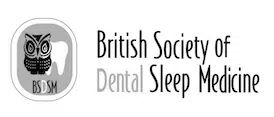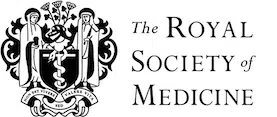Snoring is a common occurrence, but when it becomes habitual, it may require chronic snoring treatment. Chronic snoring not only impacts your sleep quality but can also disrupt your bed partner’s rest and others nearby. Left untreated, it may signal underlying health issues or lead to long-term complications like sleep apnoea. The good news is that there are solutions and professional help available.
Why Dr. Aditi Desai Stands Out

Comprehensive Care
Dr. Aditi Desai specializes in comprehensive care for sleep disorders, including sleep apnea, snoring, sleep bruxism (SB), and temporomandibular joint dysfunction (TMD).

Improving Sleep Quality
Dr. Aditi aims to improve her patients’ sleep quality, aiding in overcoming daytime issues like fatigue and reduced productivity caused by sleep disorders.

Personalized Treatment
Each patient gets a personalized treatment plan for their specific sleep issues, ensuring effective interventions for improved sleep outcomes.

Long-Term Support
Patients receive ongoing support and follow-up care from Dr. Aditi Desai for sustained improvements in sleep quality and oral health.
Snoring clinic in London – Dr Aditi Desai
If you regularly experience sleep disturbances, such as waking up unrefreshed, daytime fatigue, lack of concentration, or low mood, it may be time to seek professional help. Dr. Aditi Desai, a renowned snoring specialist in London, offers comprehensive evaluations to diagnose chronic snoring or potential underlying sleep apnoea, of which snoring is often a key symptom.
She provides tailored solutions, including chronic snoring treatment options like bespoke Mandibular Advancement Devices. She also advises on lifestyle changes and, when necessary, offers personalized medical referrals to address more complex cases.
If you’re searching for a trusted snoring clinic in London, Dr. Desai’s expertise ensures effective care and long-term relief from snoring-related issues. Take the first step toward better sleep today.
Frequently Asked Questions
What is Chronic snoring?
Chronic snoring is the sound emanating from the back of the nose and throat that not only keeps your bed partner awake but also ‘awakens the brain’ from getting restful sleep. This occurs due to the airway being partially blocked due to narrowing of the muscles at the back of the throat or as a result of narrowed or blocked nasal passages. The tongue is also a muscle that is occasionally responsible for falling back in the airway leading to the symptoms of snoring and/or sleep apnoea. The change in the aerodynamics of the air going down the back of the throat is the sound of snoring.
What makes snoring worse?
The most common exacerbating factors of snoring and sleep apnoea are Obesity, nasal obstruction (polyps, deviated septum, large turbinates) enlarged tonsils and adenoids as well as an elongated soft palate and uvula. These being physical elements of airway obstruction, there are genetic and neurophysiological aspects underlying the problem of snoring and obstructive sleep apnoea.
Of course, there are aspects of one’s lifestyle that have an overriding effect on an already dormant condition. These are poor sleep hygiene, alcohol and smoking/vaping, recreational drugs can be attributed to the problem. Some anti-depressants and muscle relaxants can exacerbate collapse of the airway.
The common denominator here is a permanent or functional narrowing of the airway, which can be at varios and/or multiple levels of the airway. This produces an intense vibration of the walls of the pharynx and the base of the tongue, which is the sound we perceive as snoring.
Home remedies
- It is difficult to prevent snoring without intervention but steps can be taken to improve it. The most important aspect of treating snoring and sleep apnoea is to prevent mouth breathing and improve nasal breathing. Nasal breathing is healthy as it enhances the release of a gas called nitric oxide NO, which is produced in the paranasal sinuses, reaching the lungs on breathing in through the nose. NO is a vasodilator, which means it helps to widen blood vessels. This can help improve oxygen circulation in your body and help reduce blood pressure.
Examples are:
- The use of nasal dilators such as cones or strips go a long way with patients who may struggle to breathe through the nostrils.
- Use of mouth tape to help and promote nasal breathing.
- Snoring is made worse by sleeping on your back, so avoid sleeping in this position by applying a pillow or a back pack to keep you on your side.
- It may be useful to raise the head by using more than one pillow but no too high to push your chin to your chest.
- Dry air may irritate and inflame the nasal mucosa. Placing a humidifier in the room may be helpful.
- Some foods contain allergens that provoke reactions, for example, nuts, and may cause a narrowing of the airways. These should be identified in order to check for possible allergies.
- Avoid alcoholic beverages in the evening, as alcohol relaxes the muscles of the pharynx, causing the air to vibrate as it passes, which then results in snoring.
- Certain sleep medications worsen snoring and the severity of sleep apnoea.
- Smoking dries and inflames the mucous membranes and is therefore strongly discouraged.
Singing and playing a Didgeridoo. Any exercise one can do to strengthen the muscles at the back of the throat, namely the airway muscles can help reduce if not eliminate snoring.
What is the treatment?
First line treatment can be based on weight loss, sleep position, lifestyle changes, particularly controlling smoking and drinking.
Besides these therapies, the most common treatment for snoring is a Mandibular Advancement Device (MAD) which is a non-invasive and reversible treatment. This is a kind of “dental device” that you wear while sleeping. It moves the lower jaw forward, thus widening the retro-lingual area, opening up the airway improving the aerodynamics. It helps prevent snoring and manage mild to moderate sleep apnoea, is simple to use and has an easy adaptation process. In recent studies, MADs are proving to be highly successful in the management of severe sleep apnoea patients particularly those who are intolerant of CPAP.
Surgery may be helpful for anatomical abnormalities such as a deviated nasal septum or thickening of the uvula and soft palate. These can be unpleasant but have a place in instances such as if you have large tonsils, contraindications to wearing a dental device or need surgical opening of the airway if tonsils and adenoids are the offenders.






